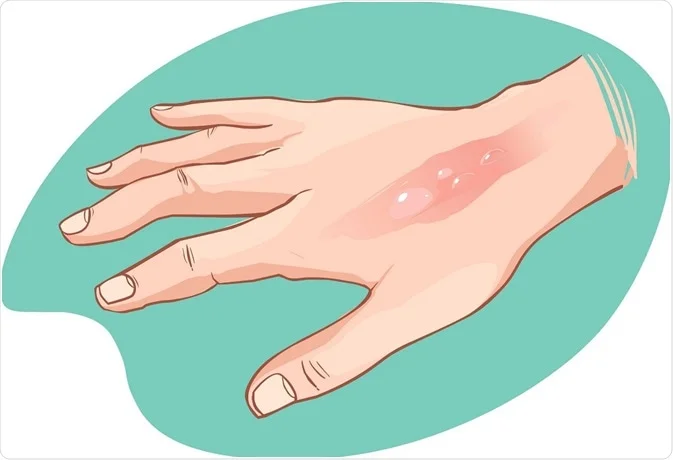ozeku.com – Headaches are one of the most common ailments experienced by individuals worldwide. They can range from mild discomfort to debilitating pain, affecting daily activities and overall quality of life. Understanding the causes of headaches is crucial for effective management and prevention. In this article, we will explore the different types of headaches, their underlying causes, and possible treatment options.
Baca Juga: Airplane Chefs: Mengelola Dapur di Udara dengan Kecepatan dan Ketelitian
Types of Headaches

Before delving into the causes, it’s essential to recognize that headaches can be categorized into two primary types: primary headaches and secondary headaches.
Primary Headaches
Primary headaches are those that occur independently and are not a symptom of an underlying medical condition. The most common types include:
- Tension-Type Headaches: Often characterized by a dull, aching pain and a sensation of tightness around the forehead or back of the head and neck. They can be triggered by stress, anxiety, or muscle tension.
- Migraine Headaches: These headaches are more intense and can last from a few hours to several days. They may be accompanied by symptoms such as nausea, vomiting, and sensitivity to light and sound. Migraines can be triggered by hormonal changes, certain foods, stress, and environmental factors.
- Cluster Headaches: These are severe, one-sided headaches that occur in cycles or clusters. They can cause intense pain around one eye and are often accompanied by nasal congestion or watering of the eye. The exact cause of cluster headaches remains unclear.
Secondary Headaches
Secondary headaches result from an underlying medical condition. They can be caused by various factors, including:
- Sinusitis: Inflammation of the sinuses can lead to sinus headaches, characterized by pain and pressure around the forehead, cheeks, and eyes.
- Head Injury: Trauma to the head can cause headaches, which may indicate a concussion or other serious injury.
- Infections: Conditions such as meningitis or encephalitis can cause severe headaches accompanied by fever and neck stiffness.
- Medications: Some medications, particularly those that affect the central nervous system, can cause headaches as a side effect or withdrawal symptom.Baca Juga: Epic Seven: Memahami Dunia RPG yang Memikat
Common Causes of Headaches
Now that we have established the types of headaches, let’s explore the common causes that can trigger these painful episodes.
1. Stress and Anxiety
Stress is one of the leading causes of tension-type headaches. When individuals experience high levels of stress or anxiety, their muscles tend to tense up, leading to a headache. This is often referred to as a “stress headache.”
Management Tips:
- Engage in relaxation techniques such as deep breathing, yoga, or meditation.
- Regular physical activity can help reduce stress levels.
2. Dehydration
Dehydration is a common trigger for headaches. When the body lacks sufficient fluids, it can lead to a decrease in blood volume, resulting in reduced oxygen delivery to the brain and subsequent headache.
Management Tips:
- Ensure adequate hydration by drinking plenty of water throughout the day.
- Pay attention to your body’s signals, and drink more fluids during hot weather or physical activity.
3. Poor Posture
Sitting for prolonged periods with poor posture can lead to muscle tension in the neck and shoulders, resulting in tension-type headaches. This is particularly common in individuals who work at desks for extended periods.
Management Tips:
- Maintain an ergonomic workspace with proper chair and desk height.
- Take regular breaks to stretch and relieve muscle tension.
4. Sleep Disturbances
Both insufficient sleep and oversleeping can trigger headaches. Sleep deprivation can lead to fatigue and increased sensitivity to pain, while excessive sleep may disrupt the body’s natural rhythms.
Management Tips:
- Establish a consistent sleep schedule and aim for 7-9 hours of quality sleep per night.
- Create a calming bedtime routine to improve sleep quality.
5. Caffeine Withdrawal
For individuals who regularly consume caffeine, suddenly reducing or eliminating caffeine intake can lead to withdrawal headaches. These headaches typically occur within 24 hours of the last caffeine consumption.
Management Tips:
- Gradually reduce caffeine intake instead of stopping abruptly.
- Stay hydrated and consider replacing caffeinated beverages with non-caffeinated alternatives.
6. Hormonal Changes
Hormonal fluctuations, particularly in women, can trigger migraines. Menstrual cycles, pregnancy, and menopause are common times when hormonal changes may lead to headaches.
Management Tips:
- Keep a headache diary to track triggers related to hormonal changes.
- Consult with a healthcare provider about preventive treatments if migraines are frequent.
7. Dietary Triggers
Certain foods and beverages can trigger headaches in susceptible individuals. Common dietary triggers include:
- Aged cheeses
- Processed meats
- Alcohol (especially red wine)
- Chocolate
- Caffeinated beverages
Management Tips:
- Keep a food diary to identify potential dietary triggers.
- Avoid or limit consumption of known headache-triggering foods.
8. Environmental Factors
Environmental factors such as bright lights, loud noises, strong odors, and changes in weather can trigger headaches, particularly migraines. Individuals may also be sensitive to changes in atmospheric pressure.
Management Tips:
- Identify and minimize exposure to environmental triggers.
- Create a comfortable and quiet environment during headache episodes.
9. Medical Conditions
Certain medical conditions can lead to secondary headaches. Conditions such as sinusitis, infections, high blood pressure, and neurological disorders can all cause headaches.
Management Tips:
- Seek medical attention if headaches are severe, persistent, or accompanied by other concerning symptoms.
- Follow the treatment plan prescribed by a healthcare professional for any underlying conditions.Baca Juga: 8 Ball Pool: Game Biliar Virtual Terpopuler di Dunia
Treatment Options
Treatment for headaches depends on the underlying cause and type of headache. Here are some common treatment options:
1. Over-the-Counter Pain Relievers
Non-prescription medications such as ibuprofen, acetaminophen, and aspirin can be effective for managing mild to moderate headaches. It’s essential to follow dosing instructions akun pro idncash gampang menang and not exceed recommended amounts.
2. Prescription Medications
For more severe headaches, particularly migraines, healthcare providers may prescribe medications such as triptans or ergotamines. These medications work by constricting blood vessels and reducing inflammation.
3. Lifestyle Modifications
Incorporating healthy lifestyle changes can significantly reduce the frequency and severity of headaches. These include:
- Regular exercise
- Adequate hydration
- Balanced diet
- Stress management techniques
4. Alternative Therapies
Some individuals find relief through alternative therapies such as acupuncture, massage, or chiropractic adjustments. These treatments can help alleviate muscle tension and promote relaxation.
5. Preventive Medications
For individuals with chronic headaches or migraines, healthcare providers may recommend preventive medications. These medications are taken regularly to reduce the frequency and severity of headaches.
Baca Juga: Tower of God: Sebuah Petualangan Epik dalam Dunia Fantasi
Conclusion
Headaches are a common and often frustrating condition that can significantly impact daily life. Understanding the various causes and types of headaches is essential for effective management. By identifying triggers, making lifestyle changes, and seeking appropriate treatment, individuals can take control of their headache symptoms and improve their overall quality of life. If headaches persist or worsen, it is crucial to consult with a healthcare professional for further evaluation and tailored treatment options.




